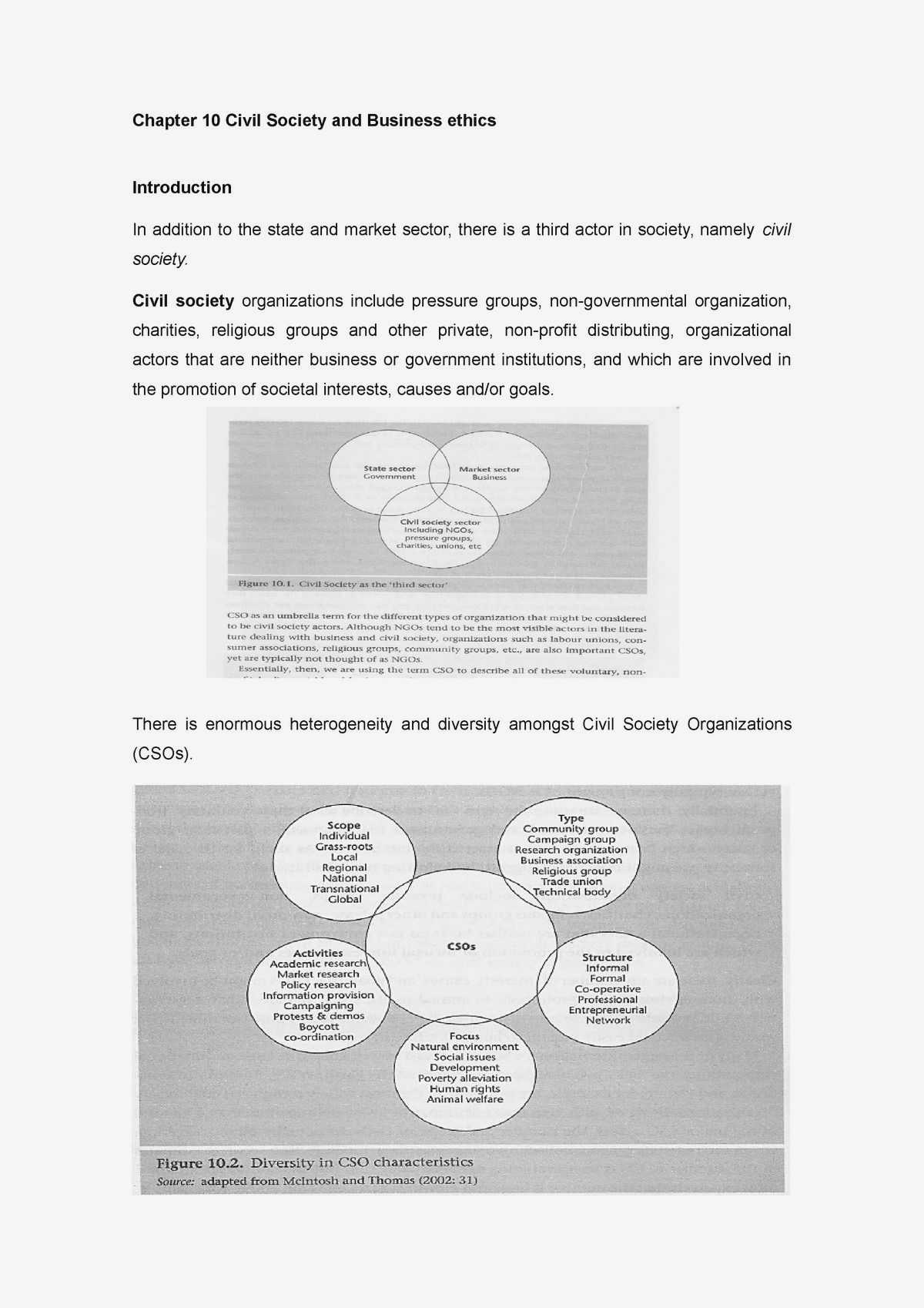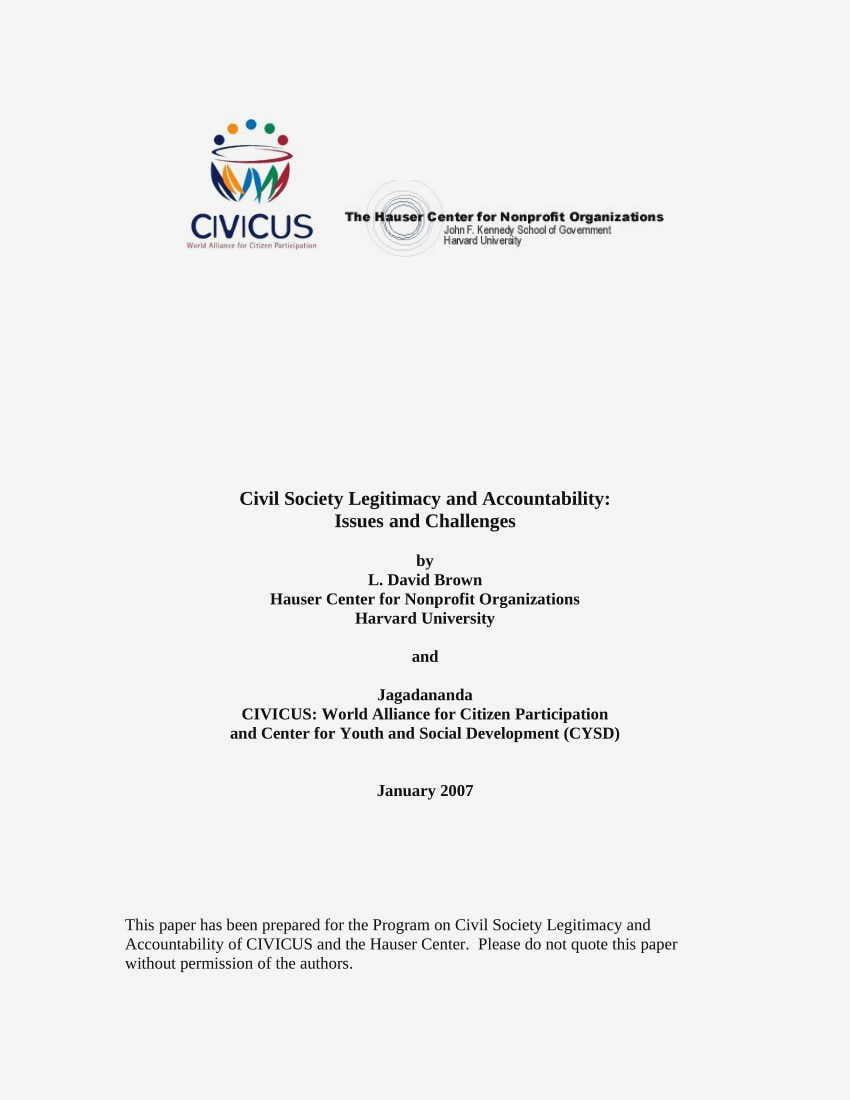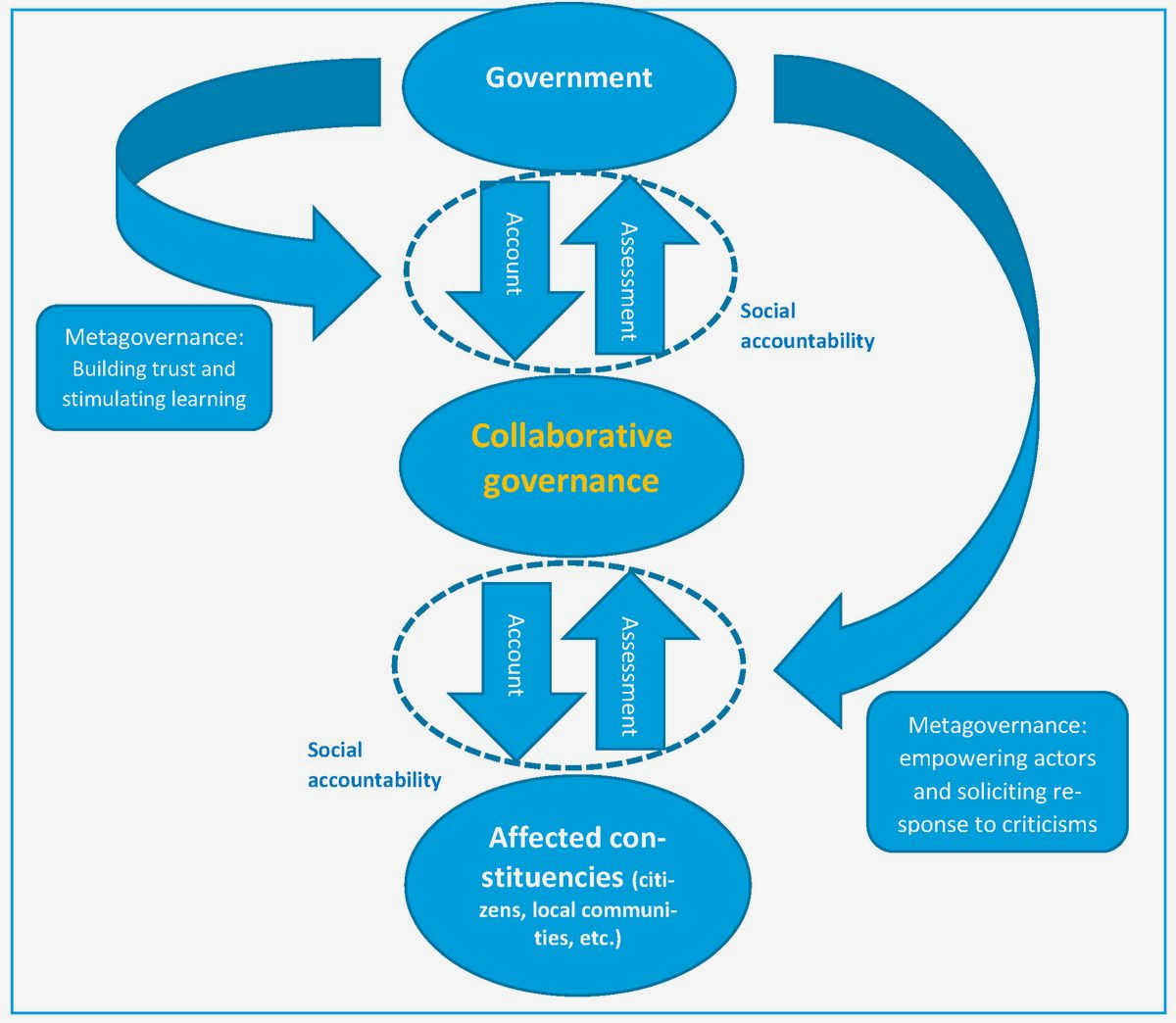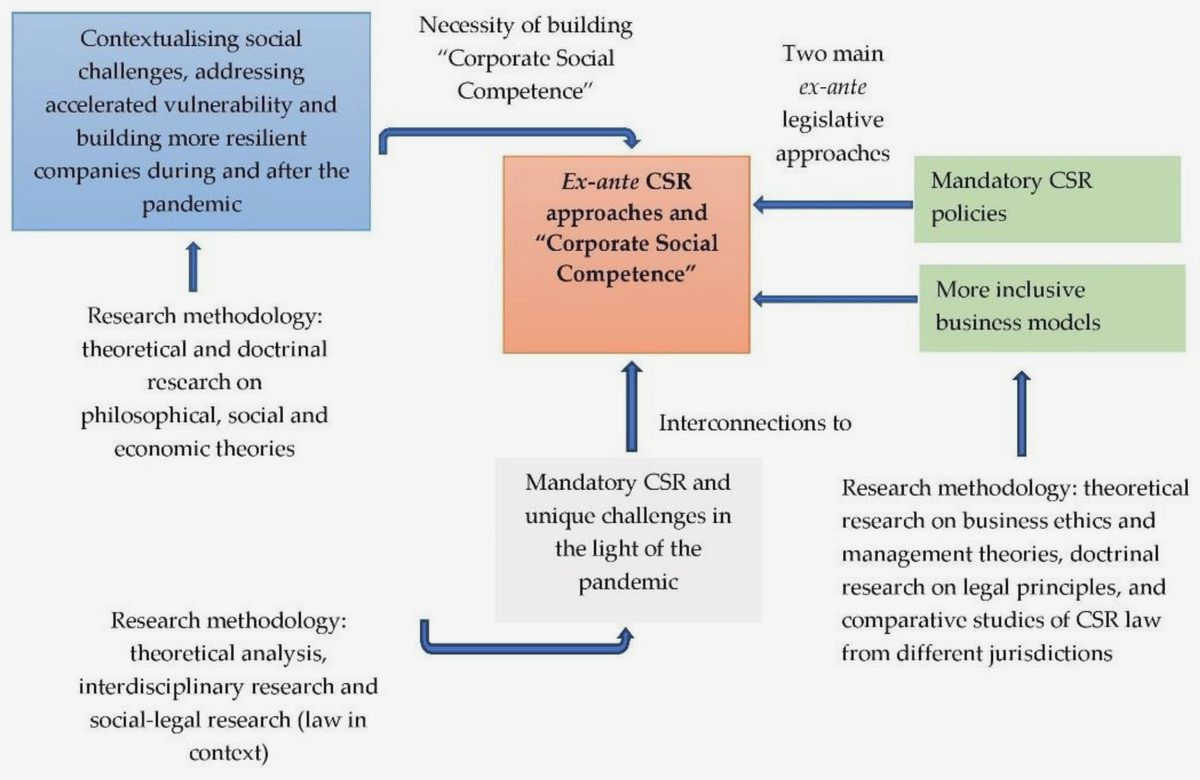Civil society plays a critical role in shaping responsible business practices, particularly when it comes to ethics and accountability. As businesses have a significant impact on society and the environment, it is essential for them to operate in a responsible and ethical manner. Civil society organizations, such as non-governmental organizations (NGOs), community groups, and advocacy organizations, have been instrumental in holding businesses accountable and pushing for greater transparency and ethical behavior.
One of the key contributions of civil society in shaping responsible business practices is through advocacy and awareness-raising activities. These organizations work to raise public awareness about unethical practices and social and environmental issues caused by businesses. By highlighting the negative impacts and advocating for change, they put pressure on businesses to take responsibility for their actions and adopt more ethical practices.
Civil society organizations also play a critical role in monitoring and evaluating business activities. They conduct independent investigations and research to assess the social, environmental, and ethical performance of businesses. This information allows them to identify areas of concern and develop recommendations for improvement. By providing objective and evidence-based assessments, civil society organizations can help guide businesses towards more responsible practices.
In addition to advocacy and monitoring, civil society organizations act as a bridge between businesses and the wider community. They facilitate dialogue and engagement between different stakeholders, including businesses, governments, and communities. By bringing diverse perspectives to the table, civil society organizations help ensure that the interests and concerns of all stakeholders are taken into account in decision-making processes.
In conclusion, civil society plays a crucial role in shaping responsible business practices, particularly in the areas of ethics and accountability. Through advocacy, monitoring, and facilitating dialogue, civil society organizations help hold businesses accountable for their actions and push for greater transparency and ethical behavior. Their contributions are essential in driving sustainable and responsible business practices, ultimately benefiting both society and the environment.
Ethics as a Foundation for Responsible Business Practices
Responsible business practices are built on a foundation of ethics, which guide companies in making decisions that are morally and socially responsible. Ethics provide the framework for businesses to consider the impact of their actions on various stakeholders, including employees, customers, communities, and the environment.
Ethical considerations drive businesses to operate in a transparent and accountable manner, ensuring that their practices are aligned with principles such as honesty, fairness, and respect for human rights. By adhering to ethical standards, companies can build trust with their stakeholders and maintain positive relationships based on integrity and reliability.
Benefits of Ethics in Business
1. Reputation and Brand Image: Acting ethically can enhance a company’s reputation and brand image, as consumers are more likely to support businesses that demonstrate responsible behavior. In today’s socially conscious world, companies that prioritize ethics can attract and retain loyal customers.
2. Attraction and Retention of Talent: Ethical business practices also contribute to attracting and retaining top talent. Employees are increasingly seeking to work for companies that align with their values and have a positive impact on society. By demonstrating ethical behavior, businesses can create a workplace that fosters employee satisfaction and loyalty.
3. Long-term Sustainability: Embracing ethics as a foundation for business practices leads to long-term sustainability. By considering the social and environmental implications of their actions, companies can contribute to a more sustainable future. This can include initiatives such as reducing carbon emissions, promoting diversity and inclusion, and engaging in philanthropic efforts.
Challenges in Implementing Ethical Practices
While ethics provide a strong foundation for responsible business practices, there are challenges in implementing ethical practices effectively. Some of these challenges include:
- Balancing ethical considerations with financial goals
- Addressing cultural differences and ethical relativism
- Ensuring consistent ethical standards throughout the organization
- Overcoming resistance to change
Despite these challenges, businesses that prioritize ethics can create a positive impact on society and drive sustainable growth. By embedding ethics into their core values and decision-making processes, companies can lead the way in shaping responsible business practices.
The Importance of Civil Society in Holding Businesses Accountable
Civil society plays a crucial role in holding businesses accountable for their actions. It serves as a watchdog, monitoring the behavior of businesses and ensuring they act in an ethical and responsible manner. This monitoring function is essential because it helps to prevent abuses and misconduct by businesses.
Civil society organizations, such as non-governmental organizations (NGOs) and community groups, have the power to mobilize public opinion and raise awareness about unethical business practices. Through their advocacy efforts, they can pressure businesses to change their behavior and adopt more responsible practices.
One way civil society holds businesses accountable is by conducting research and investigations into their activities. These organizations can uncover information about human rights violations, environmental damage, or unethical labor practices, and then publicize these findings to the public and relevant authorities. This exposure puts pressure on businesses to address the issues raised and can lead to legal actions or public backlash.
Another powerful tool in civil society’s arsenal is engagement with shareholders and investors. Many civil society organizations actively engage with shareholders and investment firms, advocating for greater transparency and responsibility in business operations. By voicing concerns and pushing for reforms, civil society can influence investment decisions and encourage businesses to prioritize ethical practices.
Furthermore, civil society organizations often work in collaboration with government bodies and regulatory agencies to create and enforce laws and regulations that promote responsible business practices. These organizations provide valuable input and expertise, ensuring that legislation is comprehensive and effectively addresses the concerns of various stakeholders.
In conclusion, civil society plays a crucial role in holding businesses accountable for their actions. Through advocacy, research, engagement, and collaboration with various stakeholders, civil society organizations contribute to the development of responsible business practices and a more ethical business environment.
Promoting Transparency and Disclosure in Business Operations
Transparency and disclosure are key principles in promoting responsible business practices. By being transparent and disclosing relevant information, businesses can build trust with stakeholders and demonstrate their commitment to ethical conduct. This includes making information about their operations, financial performance, and environmental and social impacts easily accessible and understandable.
To promote transparency, businesses can implement measures such as publishing annual reports that provide detailed information about their activities and performance. These reports should include information on the company’s governance structure, policies, and practices, as well as any risks and opportunities related to environmental and social issues. Additionally, businesses can engage in regular and open communication with stakeholders, including customers, employees, investors, and the wider community.
Disclosure is another important aspect of promoting responsible business practices. By disclosing relevant information, businesses can demonstrate accountability for their actions and ensure that stakeholders have access to information that can help them make informed decisions. This includes disclosing financial information, such as revenue, expenses, and investments, as well as information on environmental performance, labor practices, and community engagement.
In addition to traditional reporting and disclosure practices, businesses can also leverage technology to enhance transparency and disclosure. For example, companies can use online platforms to provide real-time updates on their performance and initiatives. This can include providing interactive dashboards, where stakeholders can explore information about the company’s sustainability efforts or track progress towards specific goals. Online platforms can also provide a space for stakeholders to ask questions, provide feedback, and hold businesses accountable.

In conclusion, promoting transparency and disclosure in business operations is crucial for ensuring responsible business practices. By being transparent and disclosing relevant information, businesses can build trust with stakeholders and demonstrate their commitment to ethics and accountability. This can lead to increased stakeholder engagement, improved reputation, and long-term sustainability.
Civil Society’s Role in Promoting Fair and Just Labor Practices
Civil society plays a crucial role in promoting fair and just labor practices by advocating for the rights of workers, monitoring the compliance of businesses with labor laws and standards, and fostering dialogue and collaboration between various stakeholders.
Advocating for workers’ rights: Civil society organizations, such as trade unions and labor rights groups, actively campaign for the protection and enhancement of labor rights. They raise awareness about issues such as minimum wage violations, unsafe working conditions, and forced labor, and push for legal and policy reforms that address these injustices.
Monitoring compliance: Through research, investigations, and monitoring initiatives, civil society organizations hold businesses accountable for their labor practices. They conduct independent audits, inspections, and surveys to assess if companies are complying with labor laws and international labor standards. By shining a light on violations, civil society organizations create pressure for companies to improve their labor practices.
Fostering dialogue and collaboration: Civil society organizations facilitate dialogue between workers, businesses, governments, and other stakeholders to promote fair and just labor practices. They create platforms for constructive engagement and negotiation, where different perspectives can be heard and solutions can be developed collectively. Through dialogue and collaboration, civil society helps to establish more sustainable and equitable labor relations.
Capacity building and empowerment: Civil society organizations provide training, education, and support to workers and communities, empowering them to understand their labor rights and advocate for better working conditions. By building the capacity of workers to organize, negotiate, and enforce their rights, civil society contributes to the development of a more just and equitable labor landscape.
International advocacy: Civil society organizations also play a crucial role in advocating for fair and just labor practices at the international level. They engage with international organizations, such as the International Labour Organization (ILO), to promote the adoption and implementation of labor rights conventions and standards. Through international advocacy, civil society organizations ensure that labor issues are addressed on a global scale.
Civil society’s active involvement in promoting fair and just labor practices is essential for creating an environment where workers are treated with dignity and respect, and where businesses are held accountable for their actions. By advocating for workers’ rights, monitoring compliance, fostering dialogue and collaboration, providing capacity building and empowerment, and engaging in international advocacy, civil society organizations contribute to the establishment of a more ethical and responsible labor market.
Fostering Environmental Responsibility and Sustainability
1. Promoting Environmental Ethics
One of the key roles of civil society in shaping responsible business practices is promoting environmental ethics. Civil society organizations can raise awareness about the importance of sustainable business practices that minimize harm to the environment. They can engage in advocacy campaigns to encourage businesses to adopt environmentally responsible policies. By promoting ethical behavior and highlighting the negative consequences of irresponsible practices, civil society plays a crucial role in fostering environmental responsibility.
2. Advocating for Sustainable Development
Civil society organizations also play a significant role in advocating for sustainable development. They can collaborate with businesses and government entities to develop strategies that promote sustainability and reduce environmental impact. By engaging in dialogue and providing expert knowledge, civil society can influence the decision-making process and shape policies that prioritize long-term environmental sustainability. Through their advocacy efforts, they can drive change and encourage businesses to incorporate sustainability practices into their operations.
3. Monitoring and Accountability
Civil society acts as a watchdog, monitoring businesses’ environmental practices and holding them accountable for their actions. Through research, data collection, and reporting, civil society organizations can expose instances of environmental harm and raise awareness among the public. They can also play a crucial role in holding businesses accountable for their sustainability commitments by advocating for transparency and pushing for effective regulatory frameworks. By providing independent oversight, civil society organizations ensure that businesses are held responsible for their environmental impact.
4. Collaboration and Partnerships
Civil society organizations can also foster environmental responsibility and sustainability through collaboration and partnerships with businesses. By working together, they can share knowledge, resources, and expertise to develop innovative solutions to environmental challenges. Collaborative initiatives between civil society and businesses can promote responsible environmental practices and address issues such as climate change, pollution, and resource depletion. Through partnership models, civil society can influence business decision-making and enhance the collective impact to achieve a more sustainable future.
5. Education and Awareness-raising
Civil society plays a crucial role in educating the public and raising awareness about environmental issues. Through campaigns, workshops, and educational programs, they can educate individuals about the importance of environmental responsibility and sustainable practices. By empowering individuals with knowledge and encouraging behavior change, civil society organizations can drive broader societal shifts towards sustainability. By fostering environmental literacy and encouraging responsible consumer choices, civil society can contribute to the overall goal of achieving a more sustainable and environmentally conscious society.
The Power of Consumer Activism in Influencing Business Practices
Introduction
In today’s world, consumers are increasingly becoming aware of the impact their purchasing decisions have on society and the environment. As a result, they are using their collective power to advocate for responsible business practices. Consumer activism, which refers to the actions taken by individuals or groups to influence businesses, has emerged as a powerful force in shaping corporate behavior. Through their purchasing choices, boycotts, and social media campaigns, consumers are pushing businesses to become more ethical and accountable.
Consumer Boycotts
One of the most visible forms of consumer activism is the boycott. When consumers have concerns about a company’s practices, they can organize and refuse to purchase its products or services. By doing so, they create financial pressure on the company, forcing it to reconsider its actions. For example, in recent years, there have been successful consumer boycotts targeting companies involved in unethical labor practices or environmental degradation. These boycotts have not only resulted in changes within those specific companies but have also raised awareness and sparked conversations about responsible business practices.
Online Activism and Social Media
Social media platforms have given consumers a powerful tool to express their opinions and hold businesses accountable. Through hashtags, viral campaigns, and online petitions, consumers can bring attention to unethical business practices and demand change. Social media activism has been instrumental in exposing issues such as animal cruelty, unsustainable sourcing, and human rights violations. Companies have been forced to respond to public backlash and take action to rectify their behavior. The speed and reach of social media have made it an effective platform for consumer activism.
Consumer-driven Sustainability
Consumers’ increasing concern for sustainability has influenced businesses to adopt greener practices. Through their choices, consumers have demanded products and services that are environmentally friendly, leading to the rise of eco-friendly companies and sustainable sourcing. Businesses have recognized the market demand for sustainability and have started incorporating it into their operations. This shift has been driven by consumer activism and the understanding that businesses need to align with the values and expectations of their customers.
Conclusion
The power of consumer activism in influencing business practices cannot be underestimated. Through boycotts, social media campaigns, and demands for sustainability, consumers have the ability to shape corporate behavior and promote responsible business practices. Businesses that ignore these demands risk losing customers and damaging their reputation. As consumer activism continues to grow, it is crucial for businesses to engage with their customers, listen to their concerns, and adapt their practices accordingly.
Collaboration between Civil Society and Businesses for Responsible Practices
1. Sharing of Information and Resources
Collaboration between civil society and businesses is essential for promoting responsible practices. One way this collaboration can take place is through the sharing of information and resources. Civil society organizations can provide businesses with valuable insights, research, and data on ethical and sustainable practices. In return, businesses can share their knowledge and experience in implementing responsible practices. This exchange of information can help both parties effectively address social and environmental issues.
2. Joint Advocacy and Policy Development
Civil society organizations and businesses can work together to advocate for policy changes that promote responsible practices. By joining forces, they can amplify their voices and push for reforms that encourage ethical and accountable behavior. Collaborative advocacy efforts can include lobbying for stricter regulations, supporting the development of industry standards, and pushing for transparency and accountability measures. Joint actions can have a significant impact on shaping policies and creating a supportive environment for responsible business practices.
3. Partnerships for Impactful Initiatives
Collaboration between civil society and businesses can lead to the creation of impactful initiatives that address pressing societal and environmental challenges. Through partnerships, both parties can pool their resources, expertise, and networks to develop and implement projects that promote responsible practices. These initiatives can include education and awareness campaigns, community development programs, and sustainability projects. By combining their efforts, civil society and businesses can make a tangible difference and drive positive change.
4. Monitoring and Accountability Mechanisms
Civil society can play a crucial role in monitoring the implementation of responsible practices by businesses. Through independent assessments and audits, civil society organizations can evaluate the performance of businesses in meeting ethical and sustainability standards. This monitoring helps ensure accountability and transparency. Civil society can also encourage businesses to adopt effective reporting mechanisms and engage in regular dialogue with stakeholders. By holding businesses accountable, civil society contributes to the continuous improvement of responsible practices.
5. Collaboration for Continuous Learning
Collaboration between civil society and businesses is an opportunity for continuous learning and improvement. By working together, both parties can share best practices, learn from each other’s experiences, and identify innovative solutions to complex challenges. Civil society organizations can provide feedback and guidance to businesses, helping them enhance their responsible practices. At the same time, businesses can contribute their knowledge and expertise, supporting the development of civil society initiatives. This mutual learning and cooperation contribute to the evolution of responsible business practices.
Advocating for Responsible Corporate Governance and Compliance
The role of civil society in shaping responsible business practices extends to advocating for responsible corporate governance and compliance. Corporate governance refers to the framework of rules, practices, and processes by which a company is directed and controlled. It involves balancing the interests of a company’s many stakeholders, such as shareholders, management, customers, suppliers, financiers, government, and the community.
Ensuring responsible corporate governance is crucial for maintaining ethical and accountable business practices. Civil society organizations play a vital role in advocating for transparency, accountability, and fairness in corporate decision-making processes. They raise awareness about the importance of responsible corporate governance and the negative consequences of unethical practices, such as corruption or exploitation.
Civil society organizations can engage in various activities to promote responsible corporate governance and compliance. They can conduct research and analysis to identify best practices and gaps in existing governance frameworks. Through their findings, they can provide recommendations to companies, regulators, and policymakers on how to improve corporate governance standards and enforce compliance.
Furthermore, civil society organizations can collaborate with other stakeholders, including shareholders, employees, and communities affected by corporate activities, to push for greater transparency and accountability in decision-making processes. They can advocate for the adoption of codes of conduct, the establishment of independent oversight bodies, and the implementation of mechanisms to hold companies accountable for their actions.
In addition to advocacy efforts, civil society organizations can also play a role in educating and empowering individuals and communities to become informed stakeholders. They can provide training and capacity-building programs on corporate governance principles, the importance of responsible business practices, and legal avenues for addressing grievances.
In conclusion
Advocating for responsible corporate governance and compliance is a crucial aspect of civil society’s role in shaping responsible business practices. Through their advocacy efforts, civil society organizations can contribute to creating a business environment that values ethical decision-making, transparency, and accountability.
The Role of Civil Society in Addressing Social Inequities through Business Practices
Civil society plays a crucial role in addressing social inequities through encouraging responsible and ethical business practices. By holding businesses accountable and advocating for change, civil society organizations can drive positive social impact and promote equality.
Advocacy and Awareness: Civil society organizations work to raise awareness about social inequities and the role that businesses play in perpetuating them. Through campaigns, research, and advocacy, they shine a light on unfair practices and encourage businesses to take action.
Collaboration and Partnerships: Civil society organizations often collaborate with businesses to develop innovative solutions to address social inequities. By working together, they can create initiatives that have a greater impact and reach more people in need.
Monitoring and Reporting: Civil society organizations monitor and report on the business practices of companies, ensuring transparency and accountability. By exposing unethical behavior, they can pressure businesses to change and adopt more responsible practices.
Policy and Regulatory Influence: By engaging with policymakers and advocating for stronger regulations, civil society organizations can influence the business environment to be more equitable and socially responsible. They can also push for changes in laws and policies that address social inequities and promote responsible business practices.
Capacity Building: Civil society organizations provide resources and support to businesses to help them develop and implement responsible business practices. By offering training, guidance, and best practices, they can assist businesses in becoming more socially conscious and addressing social inequities.
Consumer Activism: Civil society organizations mobilize consumers to use their purchasing power to support businesses that prioritize social equity. By promoting conscious consumerism and providing information on ethical and responsible brands, they empower individuals to make informed choices that can drive positive change.

Overall, civil society plays a vital role in addressing social inequities through business practices. By holding businesses accountable, advocating for change, and collaborating with stakeholders, civil society organizations can contribute to a more equitable and responsible business landscape.

The Influence of Civil Society on Corporate Social Responsibility Initiatives
Civil society plays a crucial role in shaping corporate social responsibility (CSR) initiatives by holding businesses accountable for their actions and advocating for ethical and sustainable practices. Through their collective actions and advocacy efforts, civil society organizations have the power to influence and pressure companies to prioritize social and environmental issues.
Engaging in dialogue and collaboration: Civil society organizations often engage in dialogue and collaboration with businesses to promote responsible business practices. By fostering partnerships and sharing knowledge, civil society can help companies understand the social and environmental impacts of their operations, and develop strategies to mitigate these effects.
Monitoring and reporting: Civil society organizations serve as watchdogs and monitors, scrutinizing companies’ CSR initiatives and holding them accountable for any unethical or unsustainable practices. Through research, investigations, and reporting, civil society can expose corporate misconduct, promoting transparency and encouraging companies to improve their CSR performance.

Advocacy and lobbying: Civil society organizations have the power to influence public opinion and shape policy through advocacy and lobbying efforts. By raising awareness about social and environmental issues, civil society can create pressure on companies to adopt stronger CSR policies and practices. By engaging with policymakers and advocating for regulatory change, civil society can contribute to a more responsible business environment.
Consumer activism: Civil society organizations rely on public support and consumer activism to drive change. By mobilizing consumers and raising consciousness about ethical consumption, civil society can incentivize companies to adopt responsible practices in order to meet consumer demand for ethical products and services. Consumer activism can ultimately influence companies to integrate CSR principles into their business operations.
International collaboration: Civil society organizations often collaborate on an international level to address global challenges and advocate for change. By leveraging their collective expertise and resources, civil society can work together to influence multinational corporations and encourage them to adopt responsible practices that benefit communities and the environment on a global scale.





